No Judgments Read online
Page 10
“Here,” he said, distractedly handing the limp, damp garment to me. “Mind finding a place for that?”
It wouldn’t have mattered if I did mind, I thought as I took the shirt between a thumb and forefinger. I needed to play nice with him, since he was the one with the chain saw. And not just for myself. Though I’d heard back from Patrick and Bill that they and their dogs were safe—they had already checked in to the hotel—Sonny’s mother had sent a frantic text in response to my voice mail:
No gas. Staying w/friends in Vero Beach. Cousin Sean says he will look after the piggies if you can have tree removed. So sorry, save all bills for me! Much luv, Lydia
So it was up to me to save Gary as well as R2-D2 and C-3PO.
Well, me and this half-naked, hard-muscled guy in my courtyard.
“There,” Drew said, in a satisfied tone, switching off the saw. He’d made short work of the frangipani, clipping away the branches blocking all the doors in what seemed like seconds. “That should work for now. Anything else I can do for you, Fresh Water?”
Was there anything else he could do for me? Was he serious?
I blinked at him as he stood there, holding the heavy chain saw, his tanned, well-muscled arms and chest glistening with even more sweat than before, which was odd because the sky was really quite overcast.
Why, yes. Yes, actually, there was quite a lot he could do for me. He could run that razor-stubbled mouth of his all down my—
God, what was wrong with me?
“No,” I said quickly, shaking myself. “No, no, thanks. Thanks so much, both of you, for helping me.” All of my attention had been so focused on shirtless Drew, I’d practically forgotten that Ed was still standing there, too. “I’m so grateful. I’m sure you want to get going—” Please, please get going. “Unless . . .”
Was I being rude? What was the correct protocol when a shirtless man and his uncle came to your house and removed a bunch of tree limbs with a chain saw so you could get inside it?
“Could I, er, get you a drink first? I think I might have some beer in my—”
Before the words were fully out of my mouth, Drew was already setting down the chain saw. Then he took his shirt from my hand, threw it over his shoulder, and strode toward my front door. “Sure. Beer would be great.”
This was not the outcome I’d been expecting.
“I gotta go,” Ed was saying as he looked down at his cell phone—on which, it turned out, he did know how to both send and receive texts. “Lu needs me to pick up more of that smoked barbecue sauce at Frank’s while they’re still open. I guess she just likes me wasting gas when there’s a shortage.”
Drew tossed him a glance. “You’re wasting my gas because you’re in my truck, Ed.”
Ed waved at him dismissively. “I’ll be right back. I’ll pick up more beer, too, if they have any left.”
I watched in some dismay as he left. Don’t, I wanted to cry. Please don’t leave me alone with your hot shirtless nephew.
Especially as the sky was looking more and more overcast, thunder rumbling more often, and the wind getting stronger . . . strong enough that it was picking up all the blossoms that had shaken loose from the branches of the frangipani tree and was sending them spiraling around the courtyard in a desperately sad ballet.
But of course I couldn’t tell him not to go. So instead, my fingers unaccountably shaky, I merely undid the locks and led Drew Hartwell into the cool air-conditioning of my apartment.
“Sorry about the mess,” I babbled. “My roommate’s out of town so I haven’t been bothering to clean up after myself—”
Gary rocketed toward us like a furry gray missile, giving me an indignant meow for having been gone so long, then buried his head against Drew’s work-booted feet.
“Whoa,” Drew said, looking down.
“Oh, that’s Gary.” I noticed my bra from last night lying on the floor, swiftly lifted it, and stuffed it between the sofa cushions before he noticed. “He does that to everyone. I got him from the shelter, he’d been there for years. They don’t know what happened to him before that, they think he was abandoned and lived on the streets for a while. All his teeth rotted out, so I had to have them removed.” I was babbling, but I couldn’t help it. Drew Hartwell was in my apartment. “He’s attention starved.”
“I can tell.” Drew stooped to rub Gary’s head with an outstretched index finger. “Hey, there, Gary,” he said, as Gary purred, contorting himself in absolute ecstasy around Drew’s foot. “You’re a good boy.”
“I’ll . . . I’ll just get you a beer.”
I hurried into the kitchen, trying not to freak out over the fact that Drew Hartwell—Drew Hartwell—was in my apartment, shirtless, being nice to my cat.
“Thanks,” I heard Drew say, from the living room. “And then you better start getting your stuff together. Yours and whatever you need for Gary, here.”
I popped back out from the kitchen, two cold bottles of beer in my hands, not sure I’d heard him correctly. “I’m sorry, what?”
“Your stuff,” Drew said pleasantly, reaching out to take one of the bottles from me. “You should start getting some stuff together. Because I’m taking you back home with me.”
Chapter Thirteen
Time: 1:36 P.M.
Temperature: 84ºF
Wind Speed: 24 MPH
Wind Gust: 44 MPH
Precipitation: 0.3 in.
He tugged on the beer, since I still hadn’t released it.
“For the hurricane?” He raised his dark eyebrows. “My aunt Lucy said she told you. You obviously can’t stay here.”
“What?” I released the bottle but continued to stare up at him in shock. “Yes, I can. Of course I can stay here. You cleared the tree out of the way. Why can’t I stay here?”
“The tree’s just the beginning of your problems.” Drew twisted the cap off his beer. “The storm hasn’t even started yet and you already almost got trapped in here. Imagine what will happen when the rain and storm surge come. This apartment building is in the flood zone. Why do you think all of your neighbors have left?”
I looked past him, through the partially open door, where Gary had sneaked out into the courtyard and was cautiously sniffing at the fallen limbs of his former shade tree. “Okay,” I said. “I can see your point. But I don’t need to stay with your aunt. I told you I have a place to stay, over at the Cascabel, with—”
“I thought we went through this already.” Drew shook his head in disbelief. “You’re not staying at that hotel. Despite what people say, it isn’t safe. You want to take your cat somewhere that isn’t safe?”
That stung. “No. Of course not.”
“Then go get your stuff. I’m taking you to my aunt’s house.” He swigged from the beer. “And hurry up. I want to get back to my place and let the dogs out for a run before the next rain band hits.”
God. Was there ever anyone bossier in all of human existence—except for my mother, of course?
What made it worse was that he was right. Mrs. Hartwell’s offer seemed like a much more sensible choice than sharing a room with Patrick and Bill and their three dogs and George Foreman grill at the hotel, or even hunkering down at the high school, which I’d also been considering. And I had long ago given up on the idea of driving up to Coral Gables to stay with Daniella, given the gasoline situation.
So I went into my bedroom and quickly began throwing things into an overnight bag . . . at least until I heard Drew call curiously from the living room, “Hey, who did all these paintings?”
My heart sank. Suddenly I remembered something else I’d done the night before, something besides leave my bra draped across the middle of the living room floor.
“Uh, no one.” My cheeks flushed with embarrassment as I darted from the bedroom, hoping to mitigate whatever damage was already done.
But it was too late. I’d forgotten that last night, after talking to my mother, I’d taken out every painting I’d done since arriving in Li
ttle Bridge, and laid them out in a half-sentimental, half-proud display across the coffee table, as if to remind myself that my stay on the island hadn’t been a total waste of time.
Now Drew Hartwell was standing over the coffee table, looking down at them—twenty-four in all, twenty-five if you included the one I hadn’t finished—with his beer forgotten in one hand, a professorial air about him . . . if professors ever went around in half-open linen shirts, cargo shorts, and Timberlands.
Noticing I was hesitating in the entranceway, he glanced at me with those too bright blue eyes.
“No one?” he asked. “No one painted two dozen little cloudscapes and left them in your living room?”
“Okay, fine.” I was still flushing. “I painted them. It’s . . . it’s a hobby.”
He whistled, looking back down at the watercolors. “Impressive work for a hobby. You’re pretty good.”
My pride felt pricked. Pretty good?
Because I knew they were better than pretty good. Or at least, better than average. I’d always loved painting, and because I’d loved it, I’d practiced. All the time. Practicing makes most people good at anything, whether they have a natural talent for it or not.
And I had natural talent. That’s what every art teacher I’d ever had had told me.
“Thanks,” I said, keeping my pride in check. “I like to paint. I don’t know about the subject matter . . . clouds. It’s a little clichéd. But painting them relaxes me.”
“You did this one by the dock.” He pointed at one of the paintings that showed a little more foreground than the others. None of them were larger than six by four inches, but in some I managed to work in a little seascape in addition to sky. “The dock outside the café?”
“Yes.” I was still embarrassed. I’d wanted to be an art major in college, but my mother especially had discouraged it. “How will you possibly be able to support yourself with an art degree?” she’d asked. “What kind of job will you be able to get, after college?”
She’d been right, of course. So I’d majored in history, since it was a degree everyone said would help you excel in law school.
Not true in my case.
“Anything with a sky-to-ocean view is popular with tourists,” Drew said, still looking down at my watercolors. “And these are small enough to fit into a carry-on suitcase. You could easily sell these around here. For a lot.”
“Thanks,” I said again, and this time I wasn’t just being polite. “But I kind of want to hang on to them. I liked . . . making them.”
“I understand.”
And for the first time, I thought he actually might. After all, he was a carpenter. He restored historic homes and was making one for himself. He loved making things with his hands, just like I did.
“You didn’t inherit this kind of talent from Judge Justine,” he said, nodding toward the paintings. “Unless there’s something about her I really don’t know. Was your dad artistic?”
Remembering my dad, and how he’d made sure that we showed up on the dock—the same dock from which I’d made most of these paintings—to watch the sunset every night when we were in Little Bridge, I felt myself becoming emotional.
“No.” I ducked my head, so he wouldn’t see that my eyes had suddenly filled with tears. “Neither of my parents was artistic.”
My egg donor mother, though. She’d included a few drawing samples in her application—along with multiple photos, making it easy to see that it was from her I’d inherited my small frame, blond hair, and brown eyes—no doubt in order to make it stand out to a discriminating couple like my parents.
It had worked.
I wasn’t about to tell any of this to Drew Hartwell, however.
“I better finish getting my stuff together before Ed gets back,” I said, instead.
“Oh.” Drew glanced down at his enormous dive watch. “Yeah. Sure.”
What did one pack for a hurricane? I wondered. I still had Daniella’s list, of course, but it no longer seemed to apply since I’d be staying in someone else’s house. The Hartwells probably had more emergency candles and batteries than they needed.
Still, it wouldn’t hurt to bring my own. Everyone in a crisis needs to pull their own weight.
So in addition to the candles and batteries, I threw the chips and charcuterie I’d bought at Frank’s Food Emporium into a canvas shopping tote, as well.
Drew stood in the kitchen doorway, watching me curiously, his half-finished beer in one hand.
“What are you bringing all that for?”
“I’m not a charity case,” I said, as I added the bottle of vodka, as well. “I don’t expect your family to feed me.”
He said nothing more until I pulled something out of the vegetable crisper.
“Is that a cheese ball?”
“Yes. So what?”
He took a last swig from his beer. “So, nothing. I just haven’t seen one of those in a long time.”
“They didn’t have much left by the time I got to the store,” I said, hoping my hair hid my flaming cheeks as I slipped the cheese ball into the tote. “But who cares? People like a good cheese ball.”
“Well, some people.”
“What is that even supposed to mean?” I snapped. “Is that some sort of classist statement about cheese?”
“Whoa,” he said, backing slowly away from the kitchen. “What is your problem?”
I shook my head and stomped away from him, into my bedroom. I didn’t have time for him or his judgmental opinions about cheese. I needed to get back to my list. I couldn’t forget Gary’s antibiotics and canned food. I didn’t know how long hurricanes lasted, but I brought a ten-day supply, just in case.
But what about clothes? Packing for a hurricane evacuation wasn’t like packing for a weekend in the Hamptons. Even though I was going to be staying in the home of an excellent hostess (who was also my boss), I doubted there were going to be any dinner parties, so no need for sundresses. I distractedly threw some shorts, T-shirts, lounge pants, underwear, toiletries, a rain jacket, and a pair of running shoes into an overnight bag.
Then, grabbing Gary’s cat carrier, I went out into the living room and pronounced myself ready to go.
Drew eyed the flashlight sticking out of the tote bag. “You don’t need that.”
“I intend to pull my own weight,” I said, stubbornly.
But he’d already taken the bag from me and was going through it, looking in disbelief at the lavender-scented candle I’d bought.
“My aunt and uncle have a whole-house generator powered by a thousand-gallon propane tank that’s buried under their front yard. That’s enough for them to run every electric device in their home for a week, if they needed to.” He held up the candle. “So what good is this thing going to do?”
I snatched the candle out of his hand and stuffed it back into the tote. “Lavender is a little-known mosquito repellant,” I said. “Everyone is going to want my candle when mosquitoes start bothering us.”
“You’re not going to be bothered by a lot of mosquitoes when you’re sitting inside in the air-conditioning, thanks to the generator, Fresh Water. How about instead of that,” he said, pointing at the candle, “you bring those.” He pointed at my paintings. “If it floods in here, you’re going to lose them.”
I looked at my cloud paintings, still sitting on the coffee table. It pained me to admit he was right about something.
“Fine,” I said with reluctance. “I’ll bring both.”
“That’s not what I—”
But it was too late. I was already stacking the paintings in another tote bag I’d grabbed from the kitchen, along with my painting supplies (I kept them in a small tackle box I’d bought at the marine hardware store).
It was only then that I felt ready to face the daunting task of getting Gary into his carrier.
Gary was, truly, the sweetest and most affectionate of cats, which was why I’d felt so lucky as opposed to aggrieved that the animal shelter had allowe
d me to adopt him, despite his costing me a small fortune in medical bills.
But the one area in which he could have used some improvement was his attitude toward his carrier. He hated it.
So the minute he laid eyes on it, Gary turned tail and tried to run out the open front door for the relative safety of the courtyard, despite the rising wind and increasingly loud thunder.
Drew, however, caught him and swung him into the air.
“Hey, there,” he said, cradling Gary in his arms like he was a large, furry baby. “Where do you think you’re going, buddy? You’re coming with us. That’s the only place you’re going.”
Gary didn’t exactly purr, but he didn’t try to flay Drew alive with his claws, either (Gary had learned over the past week and a half that biting didn’t work anymore, since he had no teeth). He seemed to accept his fate, lying limply in Drew’s arms, giving me a reproachful look that seemed to ask, Really? You’re letting this happen? Fine.
It took me a second or two to open the door to the carrier. That’s because, upon seeing Drew Hartwell standing there with my cat in his arms, my heart had stuttered.
But whose heart wouldn’t have skipped a beat at the sight of a big, handsome man holding a cute, furry cat in his arms—even if that cat happened to have no teeth?
Gary had begun vocalizing in an irritable way—his claws still sheathed—to show he was unhappy with the situation when Drew looked up and caught me staring at him.
“What?” he asked, still cradling the cat. “Am I doing this wrong? Should I put him down? I’m more of a dog than a cat person, but I like cats, too.”
“No,” I said, glad for the excuse to look away. I did not need my heartstrings pulled in his direction right now. I stepped forward and took Gary from his arms, taking care to pay no attention to the way he smelled—deliciously, of clean, male sweat and frangipani—or his body heat, which was tantalizingly warm. “It’s all good.”
Gary put up only a token fight as I stuffed him into the carrier. It was as if he, like the birds, sensed something bad was coming, and he’d better not stand in its way. Or more likely he sensed that I was in no mood for his nonsense.

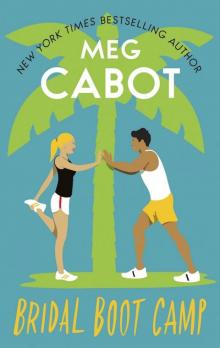 Bridal Boot Camp
Bridal Boot Camp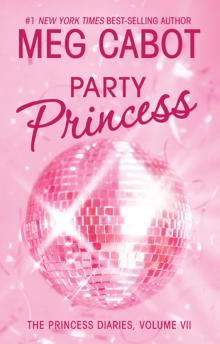 Party Princess
Party Princess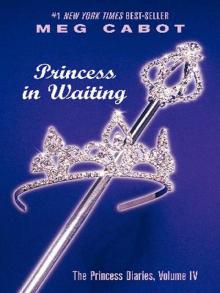 Princess in Waiting
Princess in Waiting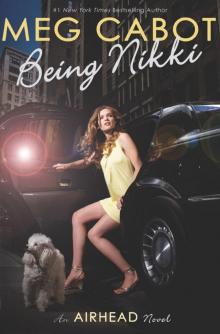 Being Nikki
Being Nikki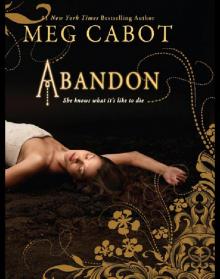 Abandon
Abandon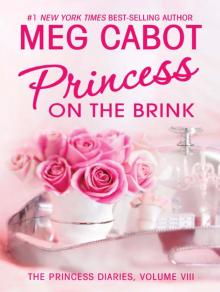 Princess on the Brink
Princess on the Brink Darkest Hour
Darkest Hour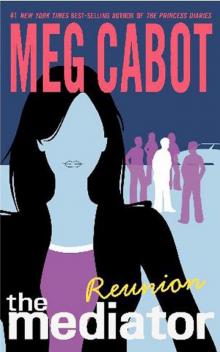 Reunion
Reunion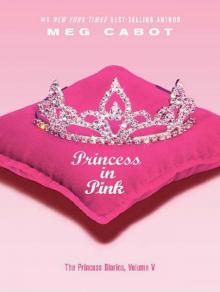 Princess in Pink
Princess in Pink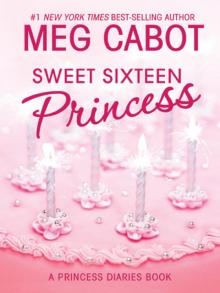 Sweet Sixteen Princess
Sweet Sixteen Princess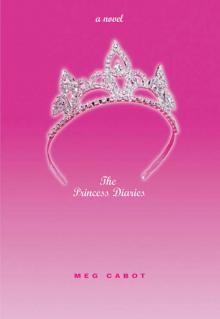 The Princess Diaries
The Princess Diaries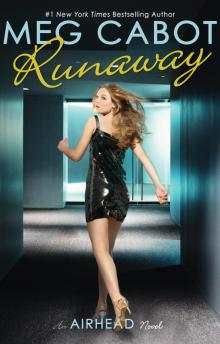 Airhead
Airhead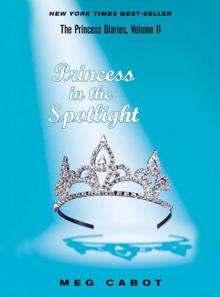 Princess in the Spotlight
Princess in the Spotlight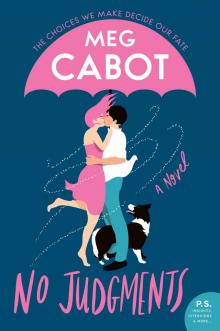 No Judgments
No Judgments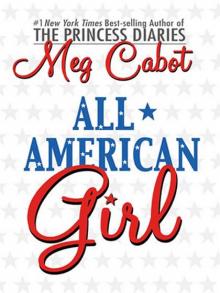 All-American Girl
All-American Girl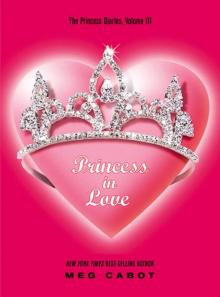 Princess in Love
Princess in Love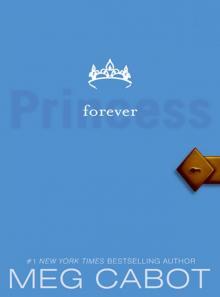 Forever Princess
Forever Princess Haunted
Haunted Shadowland
Shadowland Twilight
Twilight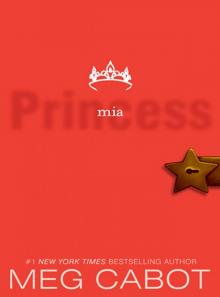 Princess Mia
Princess Mia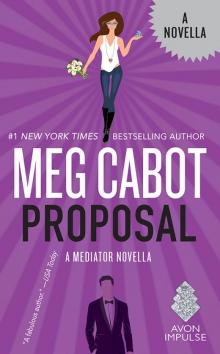 Proposal
Proposal Remembrance
Remembrance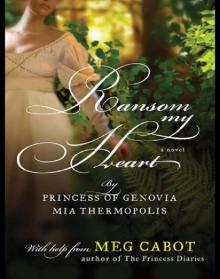 Ransom My Heart
Ransom My Heart Underworld
Underworld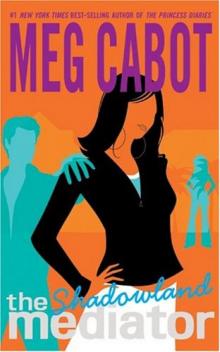 Shadowland tm-1
Shadowland tm-1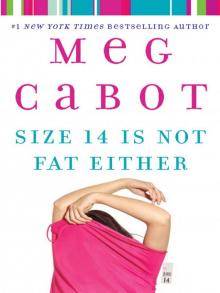 Size 14 Is Not Fat Either
Size 14 Is Not Fat Either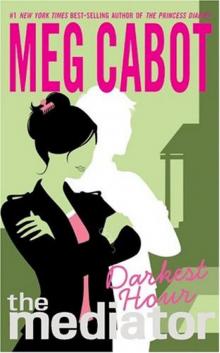 Darkest Hour tm-4
Darkest Hour tm-4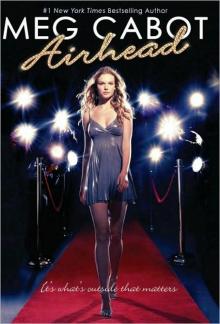 Airhead a-1
Airhead a-1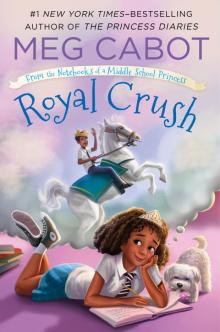 Royal Crush
Royal Crush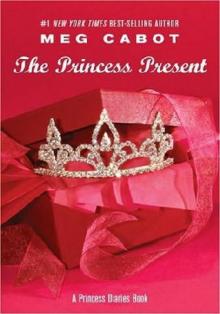 The Princess Present (princess diaries)
The Princess Present (princess diaries)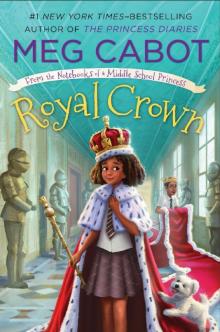 Royal Crown
Royal Crown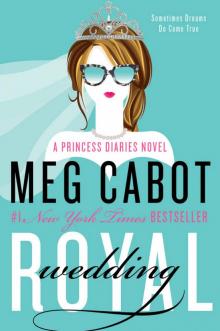 Royal Wedding: A Princess Diaries Novel (The Princess Diaries Book 11)
Royal Wedding: A Princess Diaries Novel (The Princess Diaries Book 11)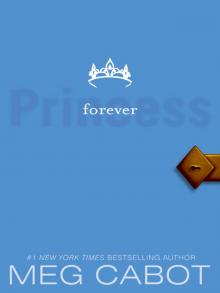 Princess Diaries, Vol. X: Forever Princess
Princess Diaries, Vol. X: Forever Princess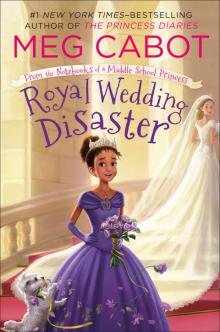 Royal Wedding Disaster
Royal Wedding Disaster Allie Finkle's Rules for Girls: Glitter Girls and the Great Fake Out
Allie Finkle's Rules for Girls: Glitter Girls and the Great Fake Out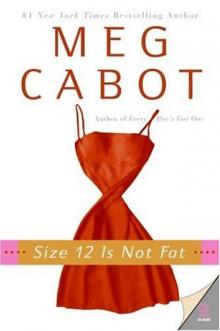 Size 12 Is Not Fat hwm-1
Size 12 Is Not Fat hwm-1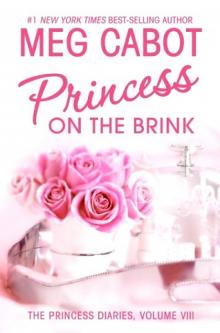 Princess on the Brink pd-8
Princess on the Brink pd-8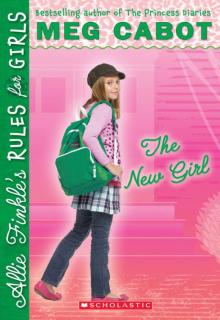 The New Girl
The New Girl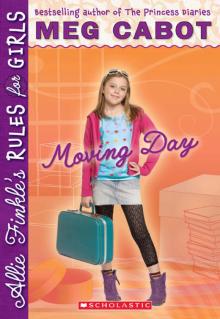 Allie Finkle's Rules for Girls: Moving Day
Allie Finkle's Rules for Girls: Moving Day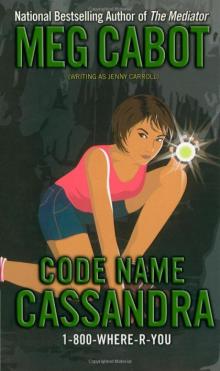 Code Name Cassandra
Code Name Cassandra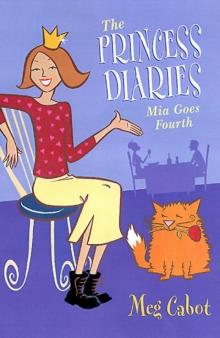 Mia Goes Fourth pd-4
Mia Goes Fourth pd-4 Sanctuary 1-4
Sanctuary 1-4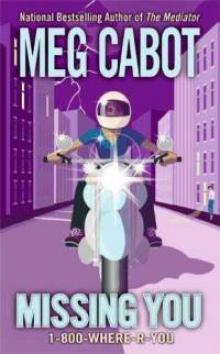 Missing You 1-5
Missing You 1-5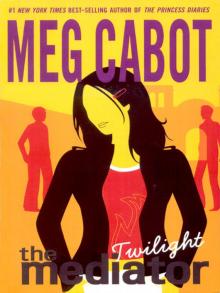 The Mediator 6: Twilight
The Mediator 6: Twilight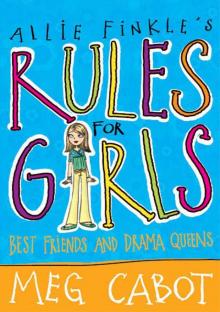 Allie Finkle's Rules for Girls: Best Friends and Drama Queens
Allie Finkle's Rules for Girls: Best Friends and Drama Queens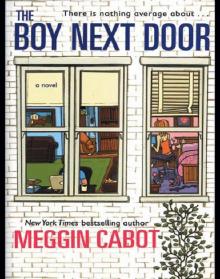 The Boy Next Door
The Boy Next Door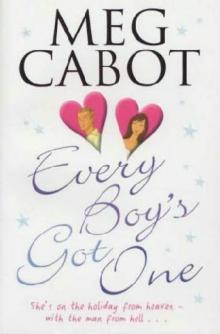 Every Boy's Got One
Every Boy's Got One Princess Mia pd-9
Princess Mia pd-9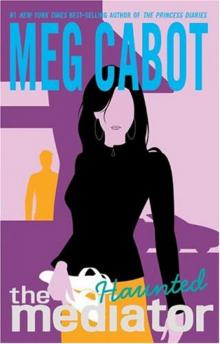 Haunted tm-5
Haunted tm-5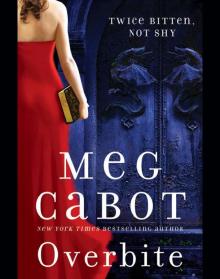 Overbite
Overbite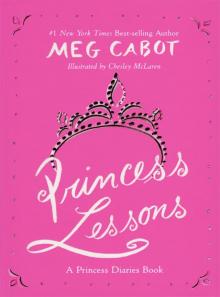 Princess Lessons
Princess Lessons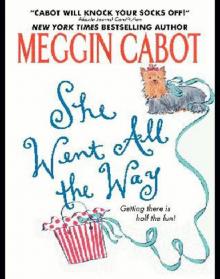 She Went All the Way
She Went All the Way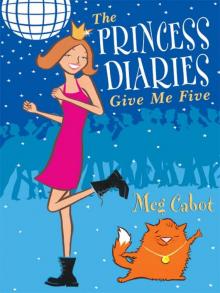 Give Me Five pd-5
Give Me Five pd-5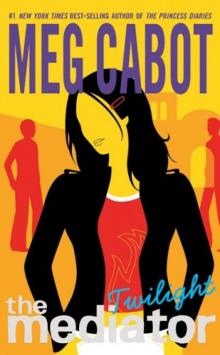 Twilight tm-6
Twilight tm-6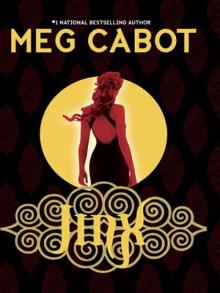 Jinx
Jinx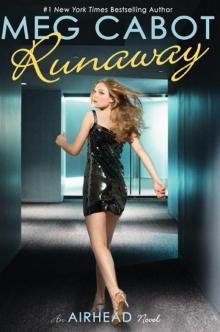 Runaway (Airhead #3)
Runaway (Airhead #3)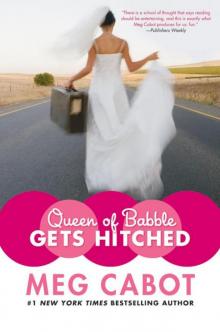 Queen of Babble Gets Hitched qob-3
Queen of Babble Gets Hitched qob-3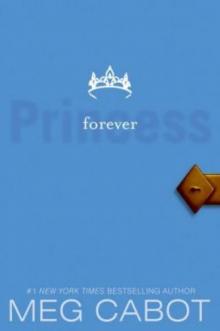 Forever Princess pd-10
Forever Princess pd-10 Queen of Babble
Queen of Babble Boy Meets Girl b-3
Boy Meets Girl b-3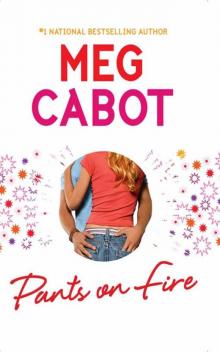 Pants on Fire
Pants on Fire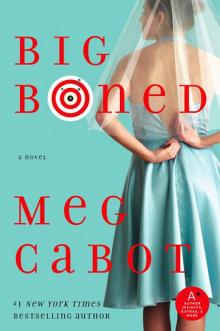 Big Boned ху-3
Big Boned ху-3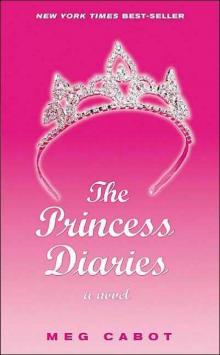 Princess' Diaries pd-1
Princess' Diaries pd-1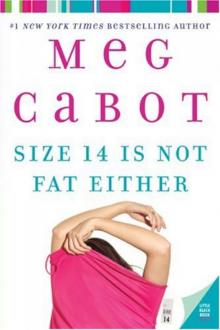 Size 14 Is Not Fat Either hwm-2
Size 14 Is Not Fat Either hwm-2 Awaken a-3
Awaken a-3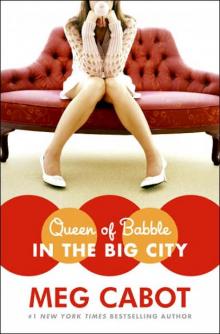 Queen Of Babble: In The Big City qob-2
Queen Of Babble: In The Big City qob-2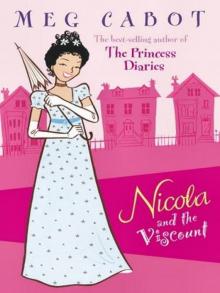 Nicola and the Viscount
Nicola and the Viscount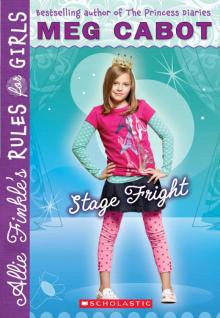 Allie Finkle's Rules for Girls: Stage Fright
Allie Finkle's Rules for Girls: Stage Fright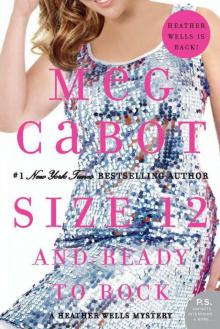 Size 12 and Ready to Rock
Size 12 and Ready to Rock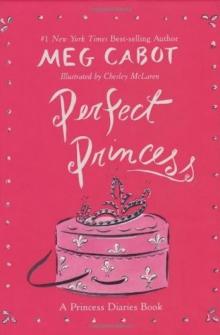 Perfect Princess
Perfect Princess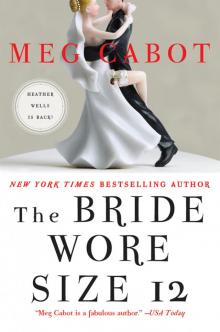 The Bride Wore Size 12
The Bride Wore Size 12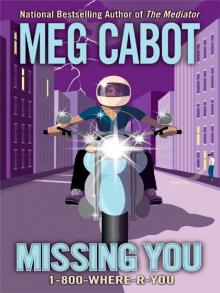 1-800-Where-R-You: Missing You
1-800-Where-R-You: Missing You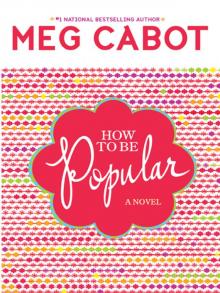 How to Be Popular
How to Be Popular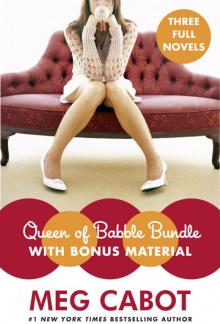 Queen of Babble Bundle with Bonus Material
Queen of Babble Bundle with Bonus Material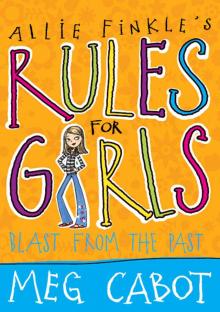 Allie Finkle's Rules for Girls: Blast from the Past
Allie Finkle's Rules for Girls: Blast from the Past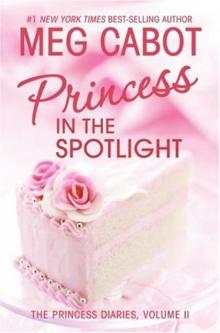 Princess in the Spotlight pd-2
Princess in the Spotlight pd-2 Ready or Not
Ready or Not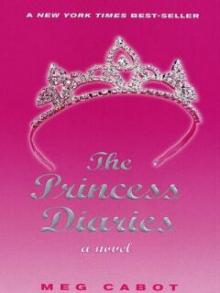 The Princess Diaries I
The Princess Diaries I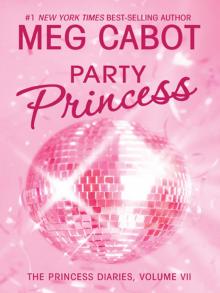 Party Princess pd-7
Party Princess pd-7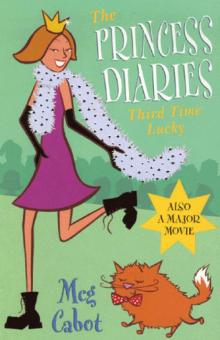 Third Time Lucky pd-3
Third Time Lucky pd-3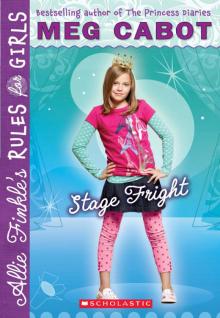 Stage Fright
Stage Fright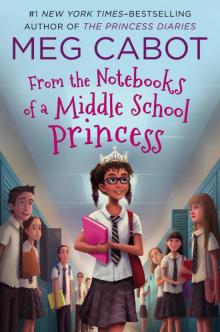 From the Notebooks of a Middle School Princess
From the Notebooks of a Middle School Princess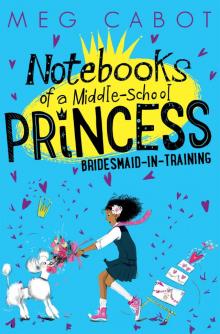 Notebooks of a Middle-School Princess Bridesmaid-in-Training
Notebooks of a Middle-School Princess Bridesmaid-in-Training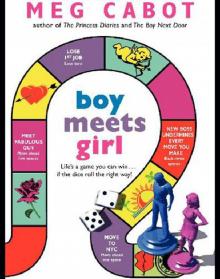 Boy Meets Girl
Boy Meets Girl Missing You
Missing You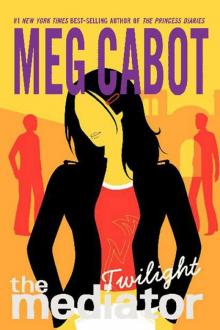 The Twilight
The Twilight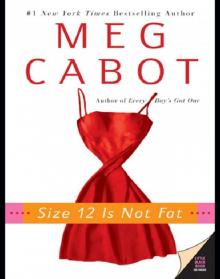 Size 12 Is Not Fat
Size 12 Is Not Fat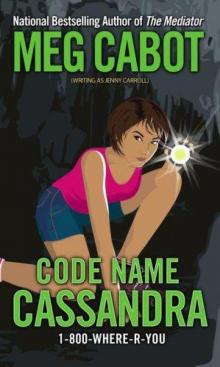 Code Name Cassandra 1-2
Code Name Cassandra 1-2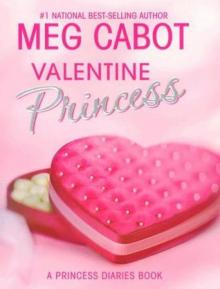 Valentine Princess
Valentine Princess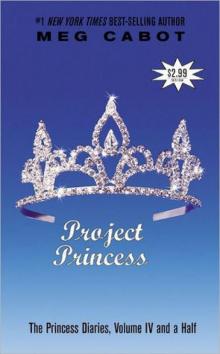 Project Princess
Project Princess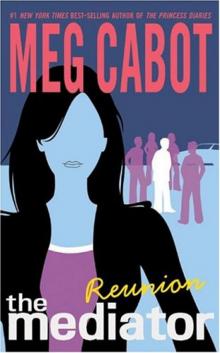 Reunion tm-3
Reunion tm-3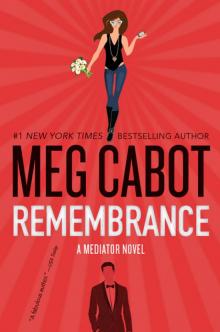 Remembrance: A Mediator Novel
Remembrance: A Mediator Novel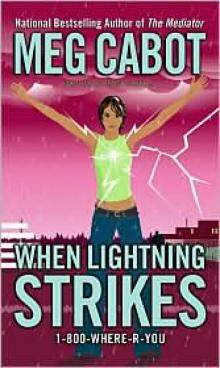 When Lightning Strikes 1-1
When Lightning Strikes 1-1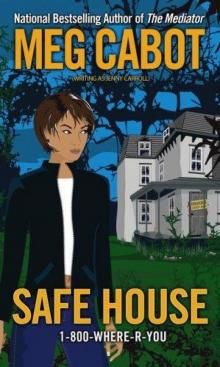 Safe House 1-3
Safe House 1-3 Teen Idol
Teen Idol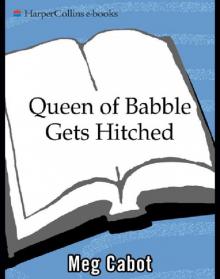 Queen of Babble Gets Hitched
Queen of Babble Gets Hitched Glitter Girls and the Great Fake Out
Glitter Girls and the Great Fake Out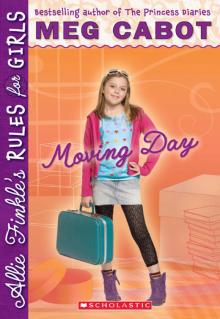 Moving Day
Moving Day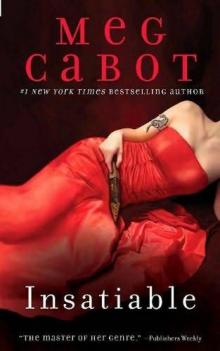 Insatiable
Insatiable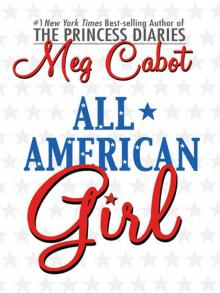 All American Girl
All American Girl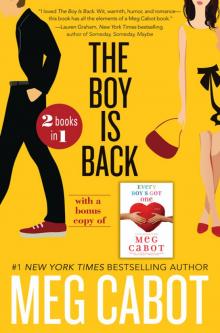 The Boy Is Back + Every Boy's Got One Bundle
The Boy Is Back + Every Boy's Got One Bundle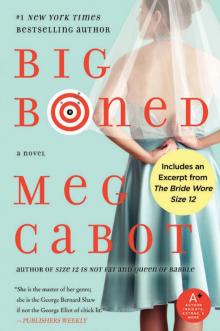 Big Boned
Big Boned Awaken
Awaken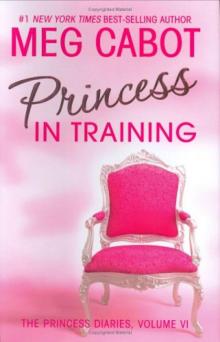 Princess in Training pd-6
Princess in Training pd-6